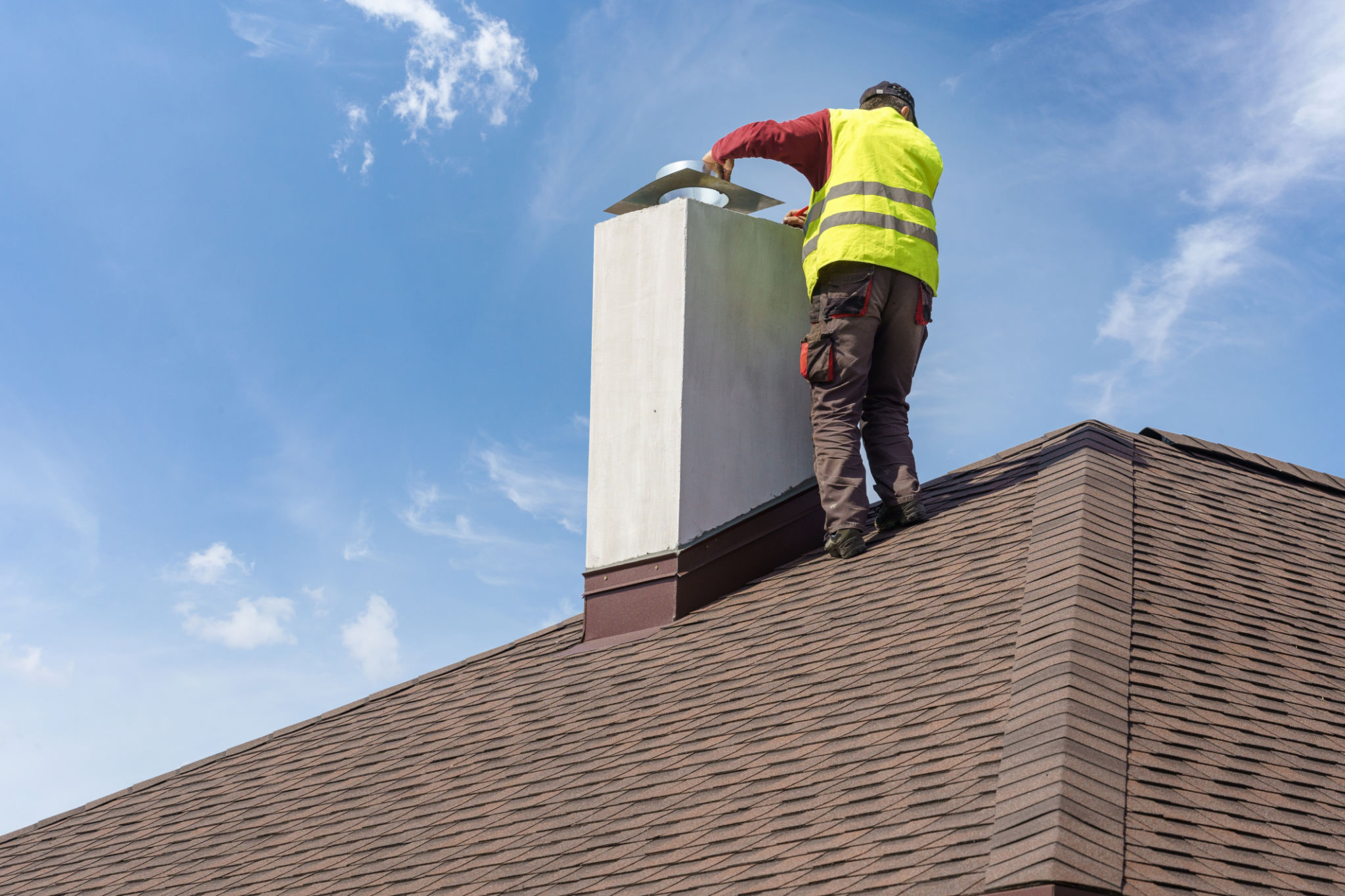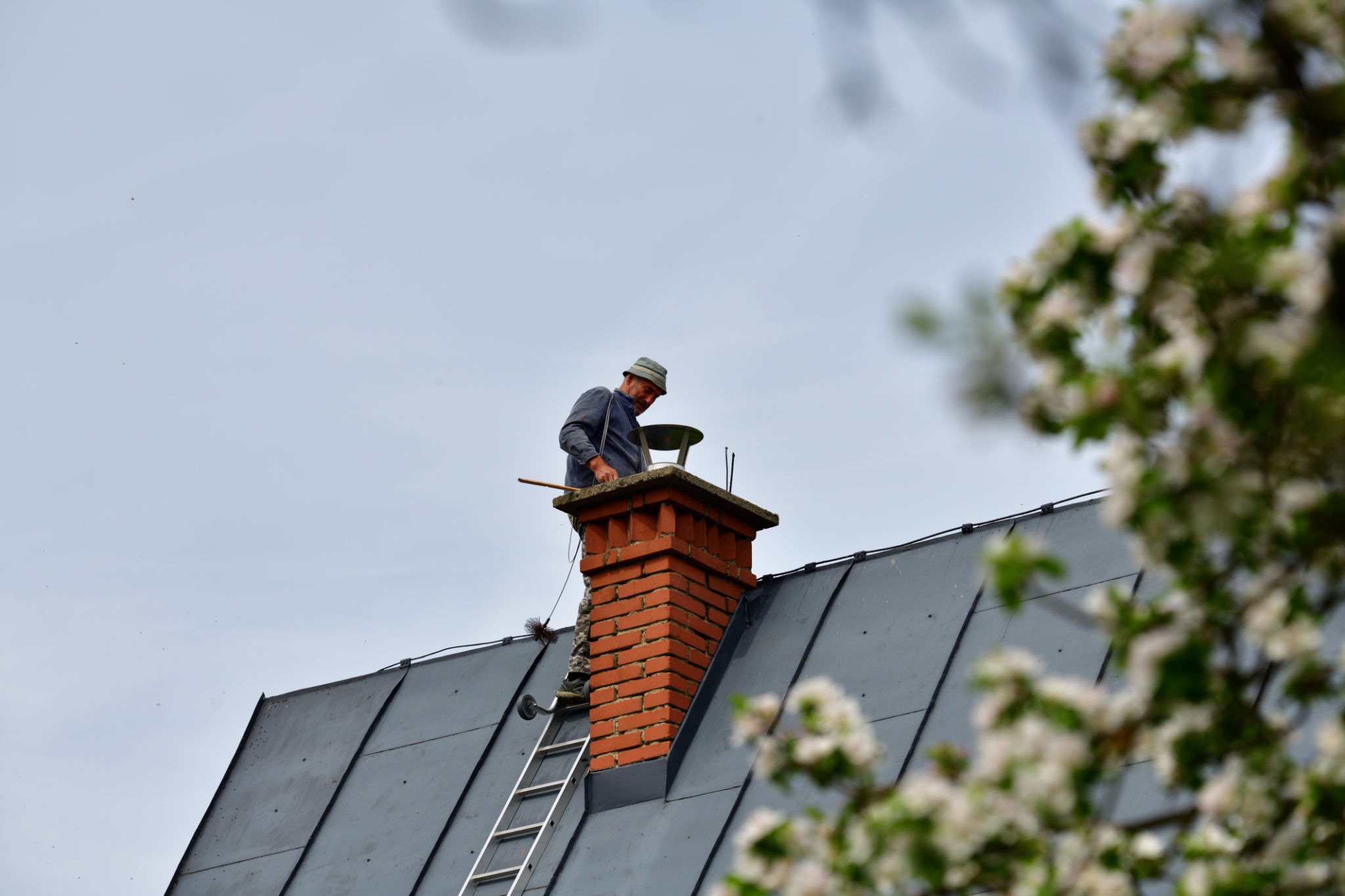DIY Chimney Maintenance: What You Can Do and When to Call a Pro
Understanding Your Chimney
Regular maintenance of your chimney is crucial for both safety and efficiency. Understanding the basic components of a chimney can help you perform simple maintenance tasks yourself. A typical chimney consists of the flue, damper, chimney cap, and crown. Keeping these components in good condition ensures that your fireplace operates safely and efficiently.
Chimneys are designed to safely vent smoke and gases from your fireplace out of your home. Over time, creosote and soot can build up inside the flue, posing a fire hazard if not cleaned regularly. It's important to inspect and clean your chimney at least once a year to prevent dangerous buildup.

DIY Chimney Maintenance Tasks
Cleaning the Chimney
One of the most essential DIY tasks is cleaning the chimney. This involves removing soot and creosote from the flue. To do this, you'll need a chimney brush that's appropriate for the size of your flue. Wearing protective gear like goggles and a mask is crucial to avoid inhaling dust and debris. Scrub the flue walls with the brush to dislodge buildup.
Inspecting the Chimney Cap and Crown
The chimney cap prevents rain, debris, and animals from entering your chimney, while the crown protects the masonry from weather damage. Regularly checking these elements for damage or wear is vital. If you notice cracks in the crown or a loose cap, repair or replace them promptly to prevent further issues.

Checking the Damper
The damper controls airflow and drafts in your fireplace. Ensure it opens and closes smoothly without obstruction. A stuck damper can lead to poor ventilation and increased creosote buildup. Lubricating the damper's hinges can help maintain its functionality.
Knowing When to Call a Professional
Major Repairs
While DIY maintenance is effective for minor issues, certain problems require professional intervention. Cracks in the chimney liner, significant masonry damage, or persistent leaks are signs that you need a professional chimney sweep or contractor to assess and repair the damage.

Annual Inspections
Even if you perform regular DIY maintenance, having an annual professional inspection is crucial. Experts have the tools and expertise to identify hidden problems that you might overlook. They can also ensure that your chimney complies with safety regulations and functions efficiently.
Dealing with Animal Intrusions
If you suspect animals have taken up residence in your chimney, it's best to call a professional for removal. Attempting to remove animals yourself can be dangerous both for you and the animal. Professionals know how to safely evict these intruders without harm.
In conclusion, routine DIY maintenance can keep your chimney in good working order, but knowing when to call a professional is key to ensuring safety and preventing costly repairs. By combining your efforts with expert help, you can enjoy a warm, cozy fireplace all season long.